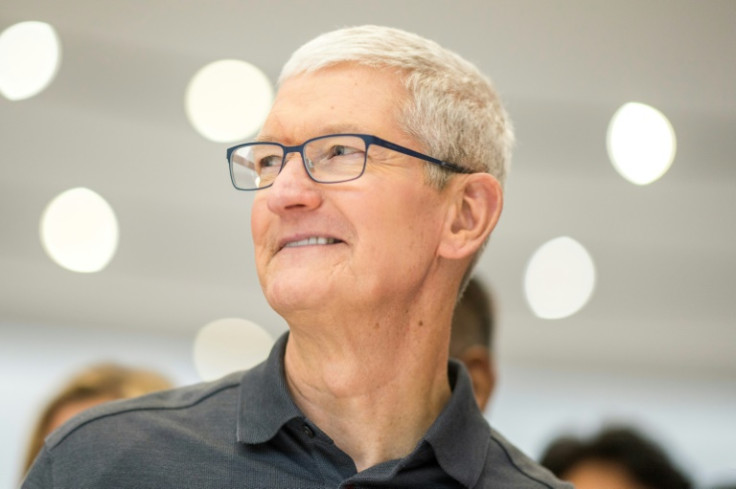Apple CEO Tim Cook Hints At Generative AI Features For iPhone And Macbook
Apple CEO Tim Cook has hinted that the tech giant will roll out artificial intelligence-powered features for iPhone and Macbook later this year.

Apple CEO Tim Cook has hinted that the tech giant will roll out artificial intelligence-powered features for iPhone and Macbook later this year.
Speaking at the company's fiscal first-quarter earnings conference, he revealed Apple is investing a 'tremendous amount of time and effort' on technologies like artificial intelligence (AI).
During the call, he told analysts: "As we look ahead, we will continue to invest in these and other technologies that will shape the future. That includes artificial intelligence where we continue to spend a tremendous amount of time and effort, and we're excited to share the details of our ongoing work in that space later this year."
He further added: "Let me just say that I think there's a huge opportunity for Apple with generative AI and with AI, without getting into many more details or getting out ahead of myself."
Apple has already integrated intuitive AI into its latest handset, the iPhone 15.
A new voice-isolation feature for the iPhone 15, for example, uses machine learning to recognize and hone in on the sound of your voice, quieting background noise on phone calls.
However, the company chose to ignore the generative AI bandwagon, instead opting for more subtle AI features.
The iPhone maker has been more active than rival big tech companies in buying AI start-ups, acquiring 21 since the beginning of 2017, research from PitchBook shows.
The most recent of those acquisitions was its purchase in early 2023 of California-based start-up WaveOne, which offers AI-powered video compression.
According to a recent research note from Morgan Stanley, almost half of Apple's AI job postings now include the term "Deep Learning", which relates to the algorithms powering generative AI. The company hired Google's top AI executive, John Giannandrea, in 2018.
Generative AI is defined as applications typically built using foundation models.
These models contain expansive artificial neural networks inspired by the billions of neurons connected in the human brain.
Foundation models are part of what is called deep learning, a term that alludes to the many deep layers within neural networks.
According to a new analysis conducted by the International Monetary Fund, the development of generative AI is set to affect almost 40 per cent of all jobs across the globe.
But major tech companies continue to invest billions into the technology, as they attempt to integrate it into their products.
In February last year, Microsoft integrated ChatGPT's capabilities into Bing, its own search engine, in a direct challenge to Google.
Earlier this month, Amazon announced a trio of generative AI tools for Alexa, enabling users to chat with historical figures, create music and take quizzes.
Google recently revealed that it would bring generative AI in search to more than 120 new countries and territories.
Notably, both Google and Samsung have introduced generative AI features for image editing, audio transcription, and more in their latest Pixel 8 series and Samsung Galaxy S24 series.
The Google AI features include Magic Editor, Magic Audio Eraser and more.
Samsung, on the other hand, introduced AI features like Chat Assist, Circle to Search, Live Translate and more.
Microsoft said this week that AI will continue to be deployed at scale as it becomes the world's most valuable company.
The tech giants overtook Apple to claim the top spot in January, as their market value reached over $3tn.
The landmark can be attributed to a recent spike in profits – the company said sales accelerated in the final months of 2023, lifted by demand for its AI tools.
© Copyright IBTimes 2025. All rights reserved.






















